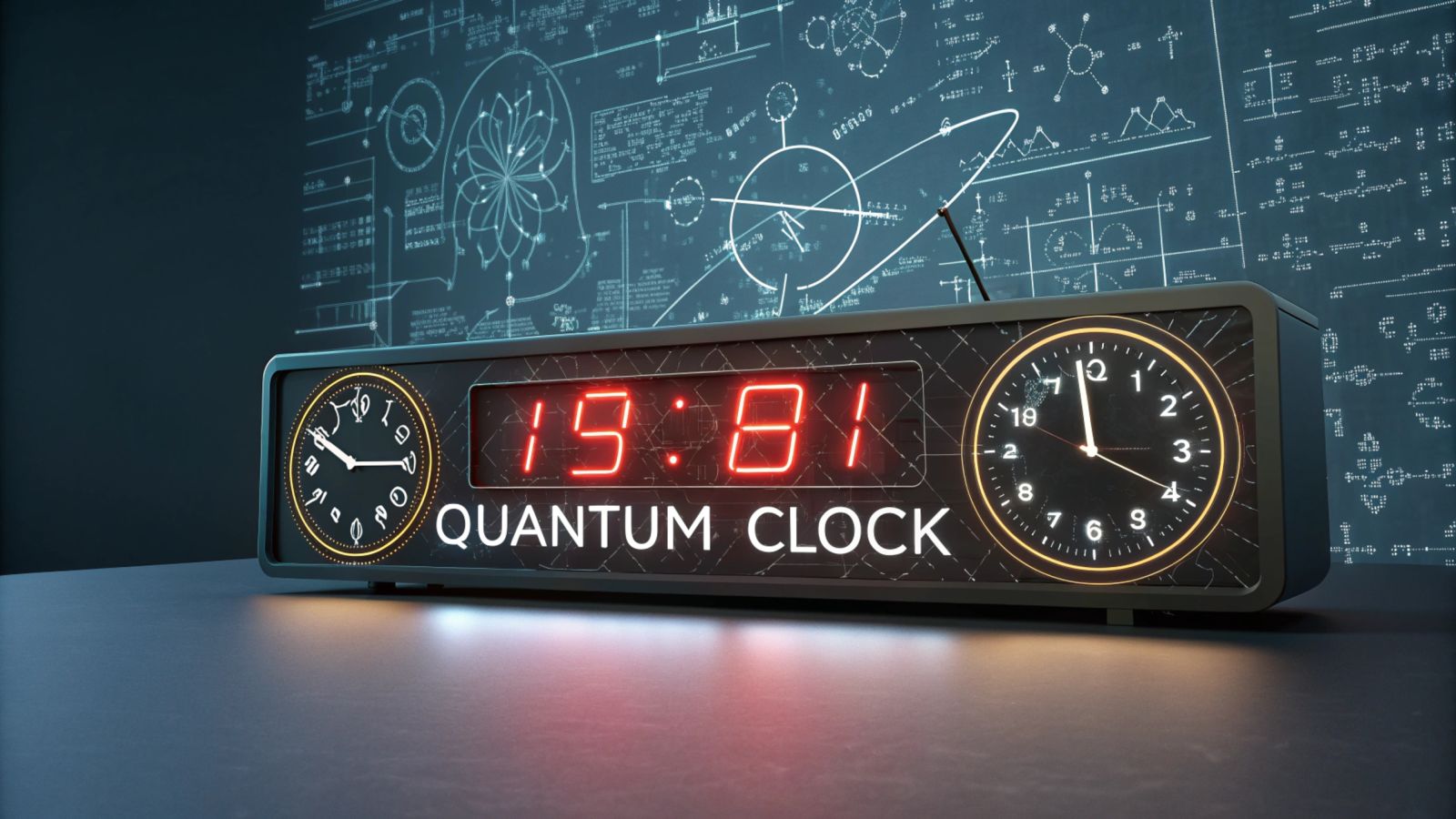Quantum causality: what if the order of events disappeared at very small scales? ⏳
Published by Adrien,
Source: The Conversation under Creative Commons license.
Other Languages: FR, DE, ES, PT
Source: The Conversation under Creative Commons license.
Other Languages: FR, DE, ES, PT
Follow us on Google News (click on ☆)
Quantum physics describes the microscopic world with remarkable precision. Its predictions have never been contradicted by experiments. But it is also renowned for its oddities.

Indeed, microscopic objects behave counterintuitively. First, their properties (such as position and speed) can sometimes only take specific discrete values. To draw an analogy with our macroscopic world, it is as if, when moving along a straight line, we could only move in "jumps" of one meter (approximately 3.3 feet), without ever being able to occupy an intermediate position.
Secondly, two entities appear to be able to influence each other over great distances, at speeds faster than the speed of light. Finally, some objects have properties (such as position or speed) that exist in "quantum superpositions" of multiple values. What does it mean for an object to be in a "superposition" of multiple positions? Is the object nowhere? Everywhere at once? These questions have intrigued physicists and philosophers for decades.
One more strangeness in the quantum world
However, the past decade has seen new discoveries emerge, making the problem even more complex. Researchers scattered around the globe indicate that when two events occur in the quantum world, the temporal order of these events is sometimes undefined.
At our scale, it is always possible to determine whether someone sneezed first and then apologized, or the other way around. Quantum physics suggests that, at small scales, neither of these possibilities may sometimes be correct.

Now, the temporal order of different events is closely tied to causal relationships. Indeed, a cause must always precede its effect. Thus, if the temporal order of different events is undefined, the same could be true for their causal order.
How can we make sense of a world in which events might not occur in a well-defined sequence? This question challenges philosophers of science. Daring responses will undoubtedly be proposed, and we may need to profoundly rethink our understanding of the physical world.
A troubling experiment
Undefined causal orders can be observed in the laboratory, for example, using the "quantum switch", a highly specific experimental setup that has been realized several times. Let's detail one such experimental realization. Two researchers each perform an operation on the same particle of light, called a photon.
These operations consist, for example, of modifying a property of the photon, known as its "spatial mode." The order of the two operations is determined not by the researchers themselves but by the value of another property of the photon, called "polarization."
When the photon's polarization is in a "quantum superposition" of two distinct values, and after a third researcher measures this polarization at the end of the experiment, the entire experimental setup cannot be described by either the scenario in which the photon was first manipulated by the first researcher and then sent to the second or by the reverse scenario.
These intriguing investigations are still in their early stages. They will allow us to study the behavior of temporal or causal relations at very small scales in the quantum world. It is crucial to make sense of the absence of temporal or causal order between events. Indeed, the order of events through time (and space) forms the foundation upon which humans build their understanding of everything.
For instance, when an object breaks after falling, we explain it by its impact with the ground, following a specific trajectory through the air. Similarly, the history of humanity is told by unfolding a continuous sequence of facts that occurred in various places around the world at precise moments in time.
To preserve our traditional ways of reasoning, we must understand what happens to the concepts of time and space in the quantum world. We must also make sense of their potential absence. To address these questions, some philosophers and physicists consider the possibility that the future could influence the past. Others entertain the notion that time and space might only be "byproducts" of more fundamental phenomena, the nature of which remains to be grasped.

Does the drop take off again before landing?
Elias Kauerhof/Unsplash, CC BY
Finally, the discovery of the "quantum switch" and undefined causal orders may prove useful in quantum computing and in the development of a new kind of "quantum computers." Indeed, these phenomena could be exploited to perform new tasks. They might also allow certain calculations to be executed more efficiently than with more standard quantum computers.
Thus, recent research in quantum physics promises potential revolutions, both philosophical and technological.
By Laurie Letertre - Doctoral student in philosophy of physics, Université Grenoble Alpes (UGA).
Cyril Branciard, researcher at CNRS, reviewed this article, and the author wishes to thank him.